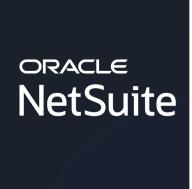

NetSuite OneWorld and ERPNext are cloud-based ERP solutions competing in the enterprise resource planning software market. NetSuite OneWorld leads in global business management, while ERPNext is preferred for its flexibility and cost-effectiveness.
Features: NetSuite OneWorld offers advanced global financial management, supporting multi-currency and tax compliance for multinational operations. It integrates comprehensive CRM and HR modules, and provides robust compliance for large enterprises. ERPNext allows extensive customization with its modular structure, supporting scalable CRM, HR, and manufacturing modules. Its open-source framework enables adaptability for smaller businesses needing flexibility.
Ease of Deployment and Customer Service: NetSuite OneWorld ensures a streamlined deployment with professional support and training, suitable for complex organizational structures. It benefits from strong guidance through its dedicated support. ERPNext, as a SaaS model, can be deployed easily but relies on community assistance, requiring more client involvement. While NetSuite offers more structured support, ERPNext's deployment benefits technically savvy teams.
Pricing and ROI: NetSuite OneWorld has higher initial costs with subscription fees and customization expenses, delivering ROI for large enterprises with complex needs. ERPNext offers lower costs due to its open-source nature, with optional paid support and hosting, appealing to smaller firms. NetSuite offers significant ROI for comprehensive solutions, while ERPNext's low-cost model provides quick payback for resource-constrained businesses.


ERPNext is an open-source ERP system known for its flexibility and comprehensive capabilities, tailored for various business needs. It integrates multiple business processes into a single platform, enabling seamless operations and efficient resource management for organizations.
ERPNext offers an extensive range of features designed to streamline business operations across sectors, including manufacturing, retail, and services. Its modular structure supports accounting, human resources, inventory, and project management. Recognized for adaptability, ERPNext allows users to customize and extend functionalities, although improvements are encouraged in reporting tools and system scalability.
What are the key features of ERPNext?ERPNext is leveraged across industries like manufacturing, where it assists in production planning and inventory oversight. In retail, it manages point-of-sale operations and customer engagement. Service industries use ERPNext for project management and resource allocation, ensuring efficient service delivery.
We monitor all ERP reviews to prevent fraudulent reviews and keep review quality high. We do not post reviews by company employees or direct competitors. We validate each review for authenticity via cross-reference with LinkedIn, and personal follow-up with the reviewer when necessary.